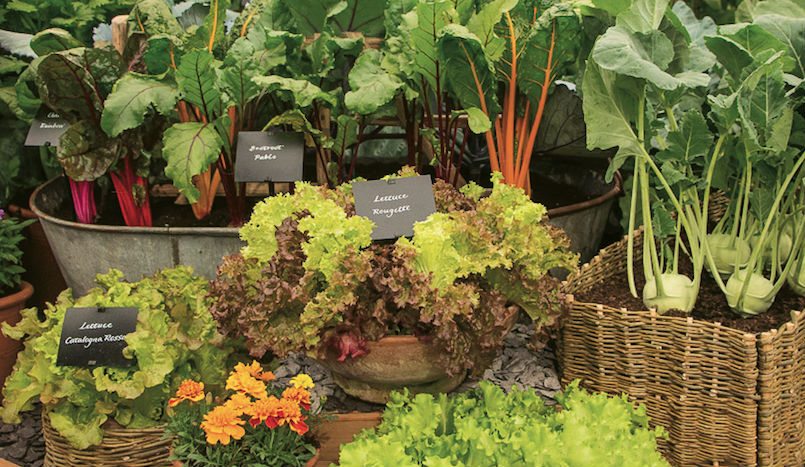
Elegant Ideas for Selling More Edibles
Edibles are one of the hottest topics in retail garden centers these days for the under 35 crowd. They understand the value of teaching their kids about eating fruits and veggies and tend to be more open to going out of their way for buying organics and caring for the environment.
Those who are older with an interest toward “dabbling” at adding edibles to the landscape or growing things with the grandkids are adding to the expanding numbers we’re seeing in this sector of the gardening world these days.
However, there are several outdated notions that still hold both the retailers and the customers back from truly going for it with edibles the way we know they can successfully. So, let’s look at these issues and how you can sell more as a trusted resource for all things tasty from the garden.
First are these assumptions from our customers:
- Edibles should be segregated behind a gate or wall in the “garden” so no one can see the “mess.”
- Anything worth eating is going to take too much time and effort, except my prized tomatoes.
- I don’t know anything about growing food, so learning will be too time consuming and cumbersome.
- I’ve had failures at growing things in the past, so I gave up.
Second are the assumptions I see retailers make:
- All “edibles” should be segregated into one area away from the “pretty plants.”
- Customers aren’t interested in the unique and unusual edibles, only the standards.
- More customers say they want to grow edibles, but the numbers just don’t bear that out.
- Poor attendance at seminars and classes on growing edibles has soured interest.
Secrets to Success
There are garden centers all over the country that are having booming success with selling edibles, promoting classes and getting gardeners of all ages to participate. They are even supporting small farmers markets and CSA programs as an offshoot of the nursery itself. So, what are the secrets to success that they have found?
 They are selling health, organic eating, great flavors, cocktails, recipes, life skills, food preserving, relationship building, mental health, food donations, gifts from the garden, seed saving, eating locally, community pride, wildlife preservation and on and on and on.
They are selling health, organic eating, great flavors, cocktails, recipes, life skills, food preserving, relationship building, mental health, food donations, gifts from the garden, seed saving, eating locally, community pride, wildlife preservation and on and on and on.
They’re not just plunking plants down in old- fashioned rows; they’re selling ideas. They are creating a feeling that they want to convey. They are growing a community of gardeners rather than just selling a pack of lettuce; they are selling a pack of lettuce and pots of violas to go with them. They are selling ideas.
For example, if you are in a hot climate where peppers thrive, play that up with unique and unusual peppers that your customers won’t find anywhere else. Become the go-to source with the gardening community for peppers. Have a hot pepper eating contest, a recipe contest using a particular pepper and then a celebrity tasting to crown the winner. Then you introduce your next year’s new pepper selection to get the crowd all riled up and ready to go for the next season. Or maybe you involve the customers and let them vote on options for the next season.
The same could be said for herbs. Rare and unusual or tried and true, the world of herbs is vast in its complexity and potential from spa treatments to grooms’ boutonnieres, from pest control to baking.
Why not be the resource for herbs that people want to use for infusing into their favorite alcohol for unique cocktail recipes? Lemon thyme vodka gimlet anyone? Yum! Many of those same herbs are gorgeous container and landscape plants too.
Once, I was working in a nursery where we carried over 20 different kinds of basil and nine different types of figs. You better believe we were proud to crow about that to our customers both in person and on social media.
None of these ideas are new, none of them radical, but when presented in a new way, they are more entertaining. These ideas are much more joyful and a source for us to create “edutainment” rather than simply putting out rows of pack vegetables with a price on them.
Multiple Uses
Inter-planting edible crops with ornamental crops is the future of foodscaping. Anyplace where aesthetics and function can come together it’s a win-win.
Several years ago, when the ‘Sunshine Blue’ and ‘Bountiful Blue’ blueberries first came out, I was working with a nursery on improving the quality of the displays and thereby the quality of the sales. I will never forget falling in love with how beautiful this plant was as just a shrub, never mind that it made blueberries. Its blue-green foliage was different with its smoky lavender hue after winter, they don’t grow too large and for heaven’s sake, you get BLUEBERRIES!
 I explained to the manager that these plants were too cool to be hidden way in the back of the nursery with bins of bare-root stock and other non-descript plants in early spring. “Let’s get them out front and center in a display with azaleas and all kinds of other spring blooming plants. These should be used as a landscape shrub, or a container plant. We need to show people all the ways they can play with these!” Do you see what I did there?
I explained to the manager that these plants were too cool to be hidden way in the back of the nursery with bins of bare-root stock and other non-descript plants in early spring. “Let’s get them out front and center in a display with azaleas and all kinds of other spring blooming plants. These should be used as a landscape shrub, or a container plant. We need to show people all the ways they can play with these!” Do you see what I did there?
A columnar apple tree fits the bill in a large container if your customer wants apples in a small-space garden. So why don’t we feature that big container in the center of the nursery all planted up with great foliage and flowers all around the base and show them how they can come up with their own ideas for playing with it? Maybe they would want a flowering vine up that apple tree. Why not?
It doesn’t have to be a choice of landscape or garden. Bring the idea of the beautiful and edible landscape out into the open and make it just as important and valuable of an idea as the roses (add an herb border in the rose section too!) so you can demonstrate that gardening doesn’t have to be a sweaty, arduous, grumbling task but a delightful adventure in learning.
Thinking creatively about how you sell edibles is an opportunity that might bring both tasty ideas and profits.

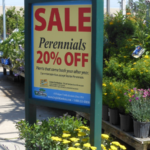

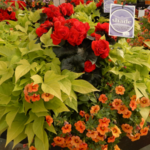


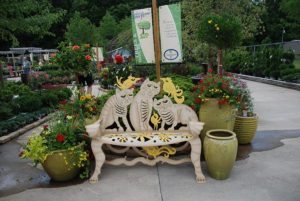
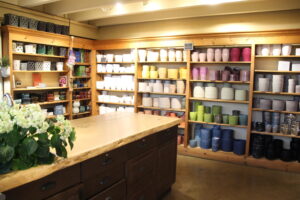
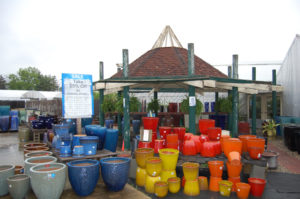
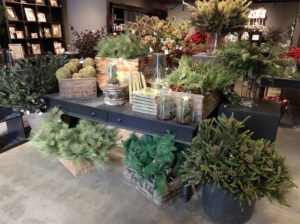
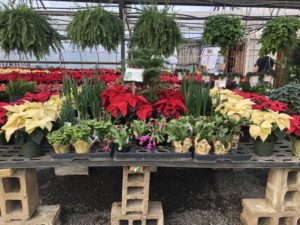
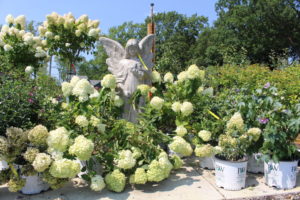
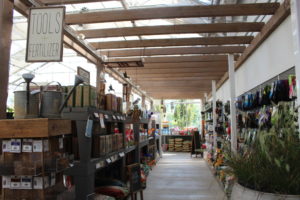
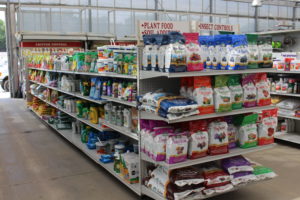
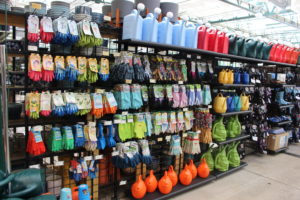
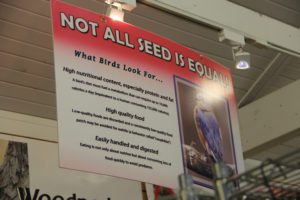
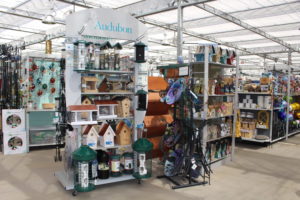
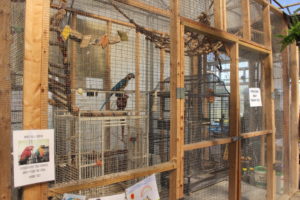
 Videos
Videos





